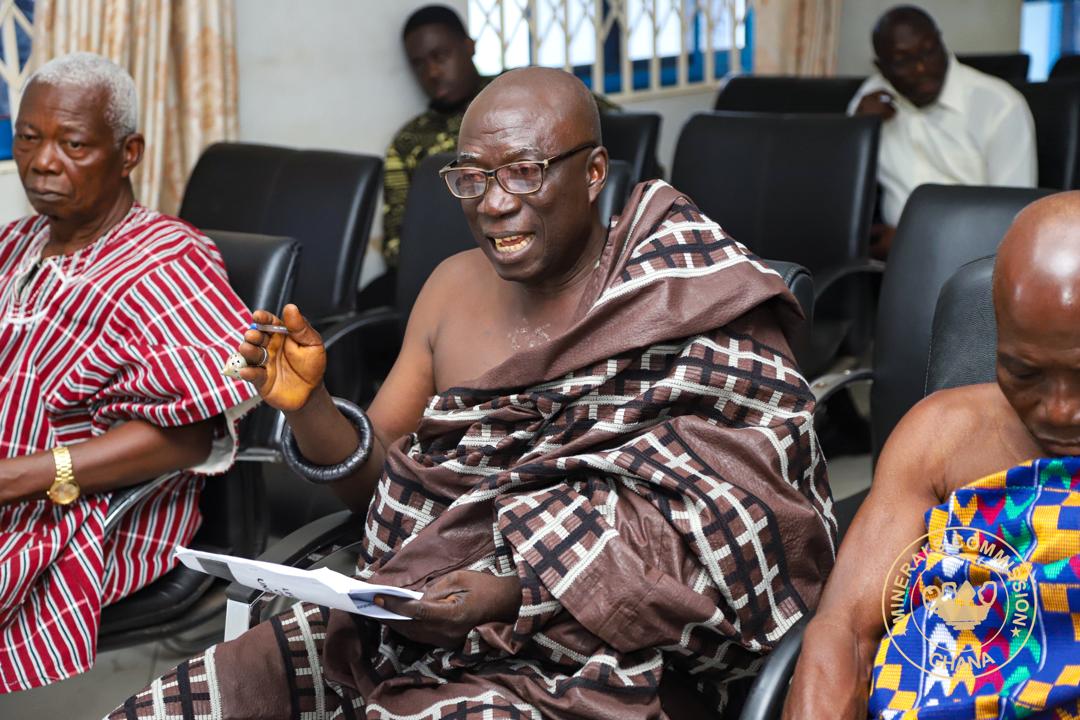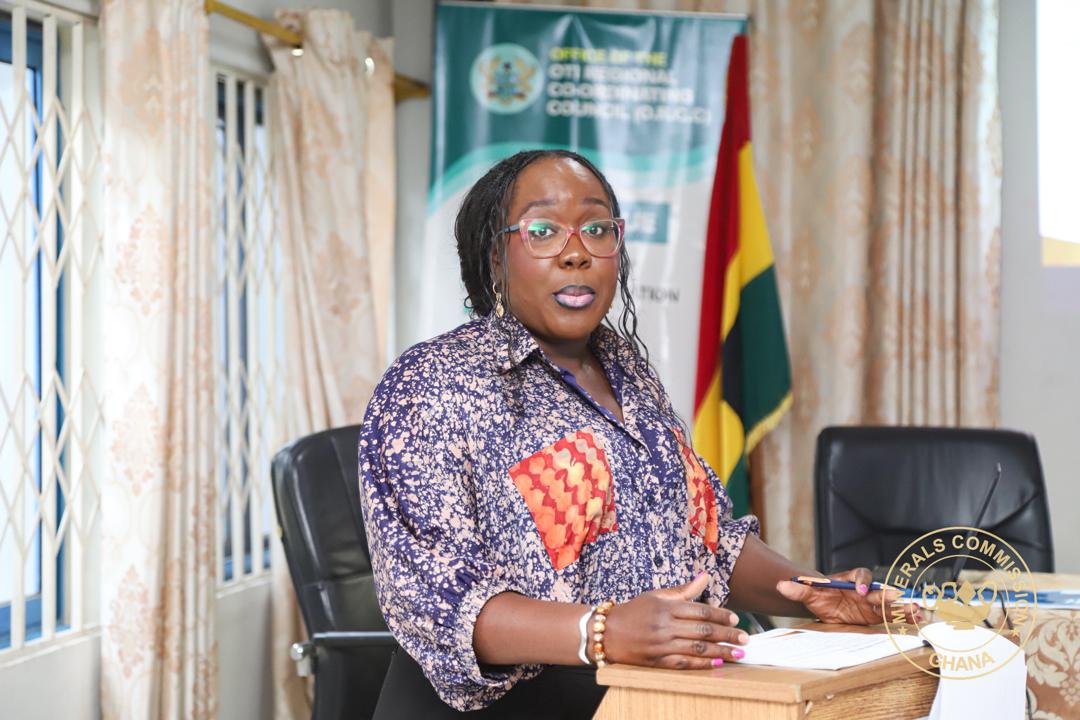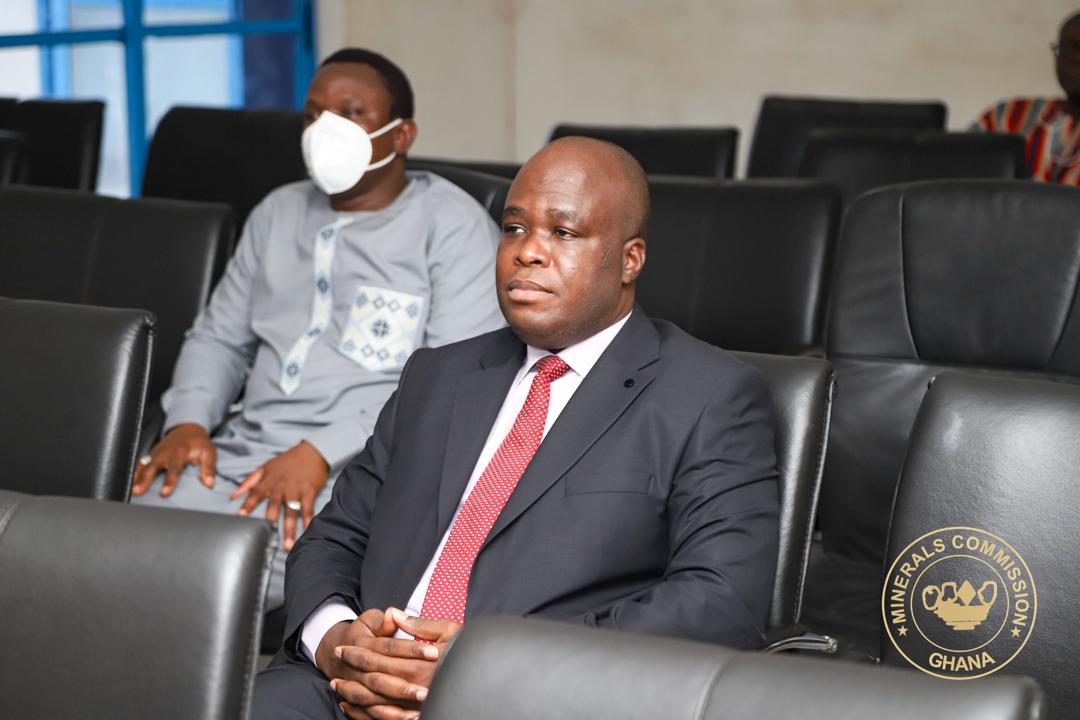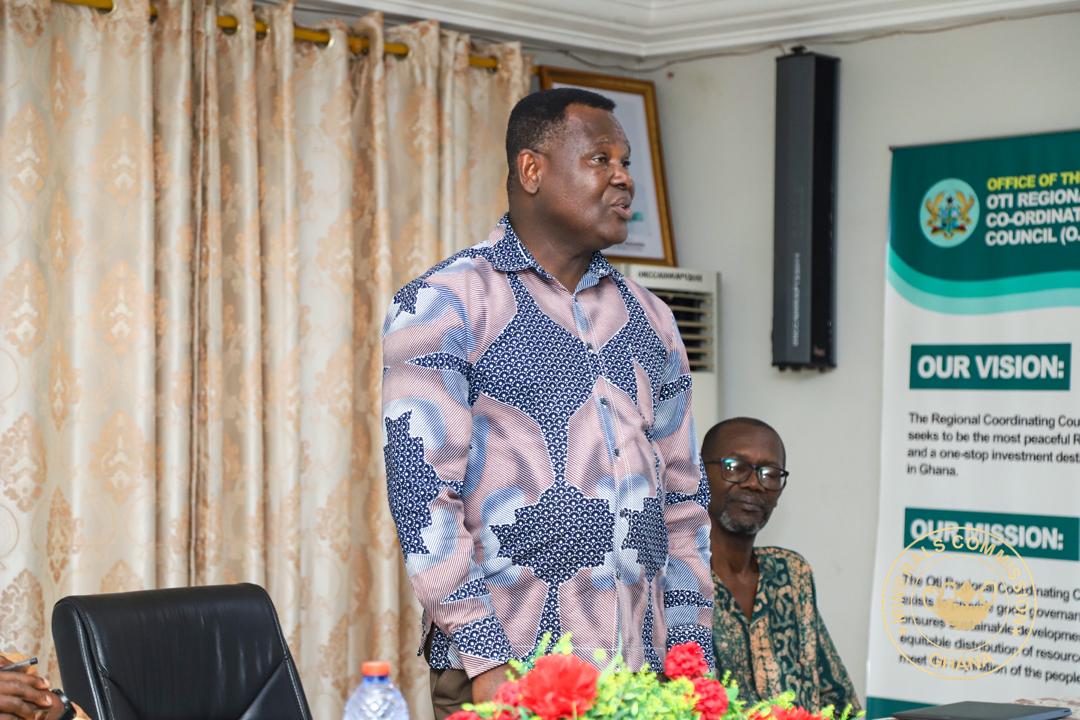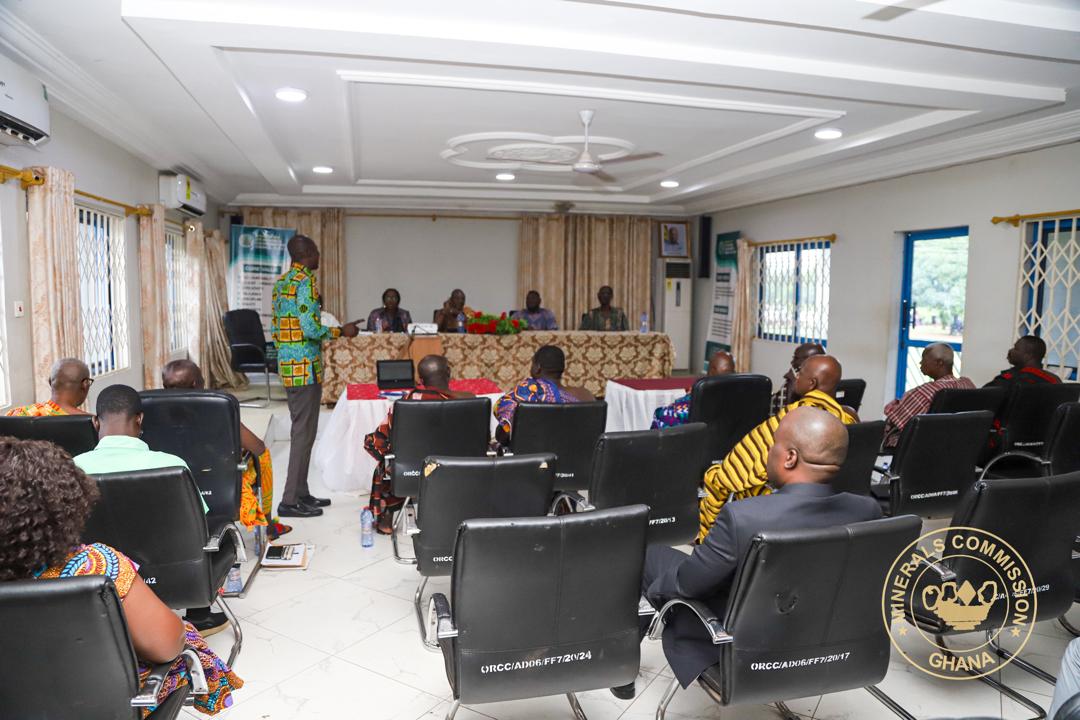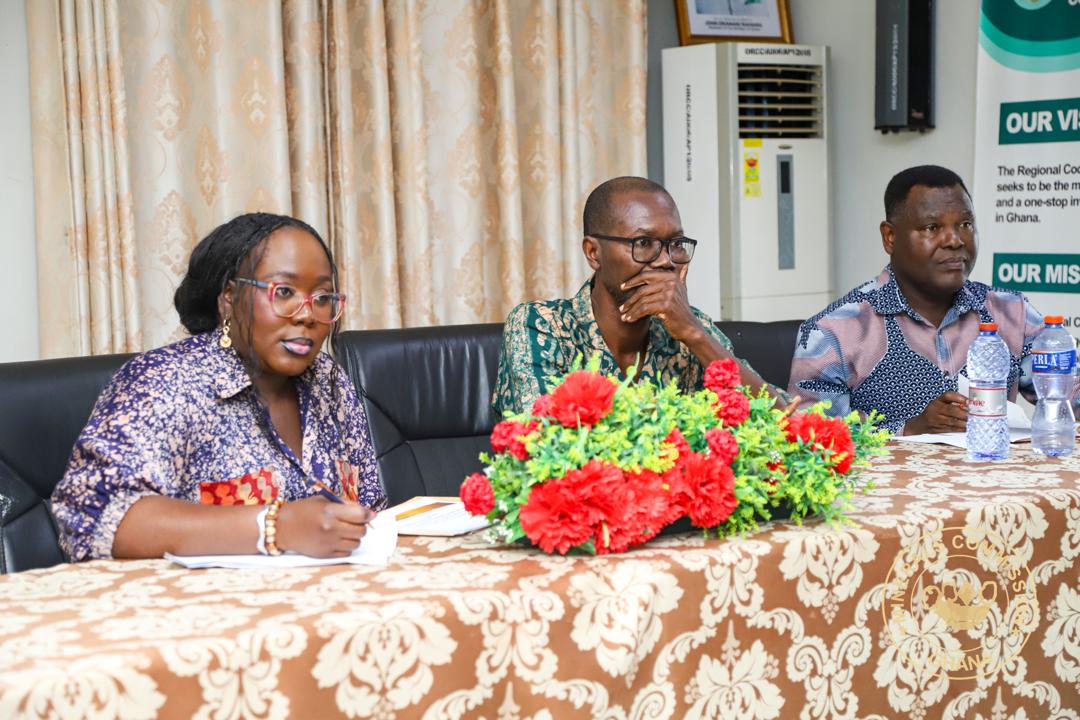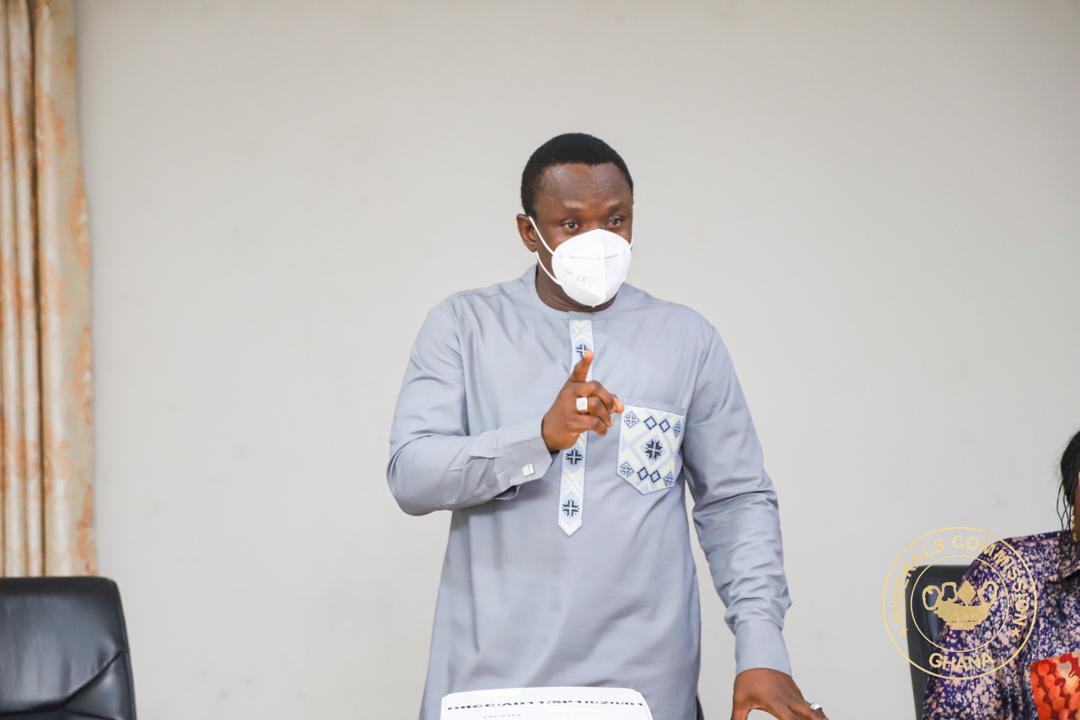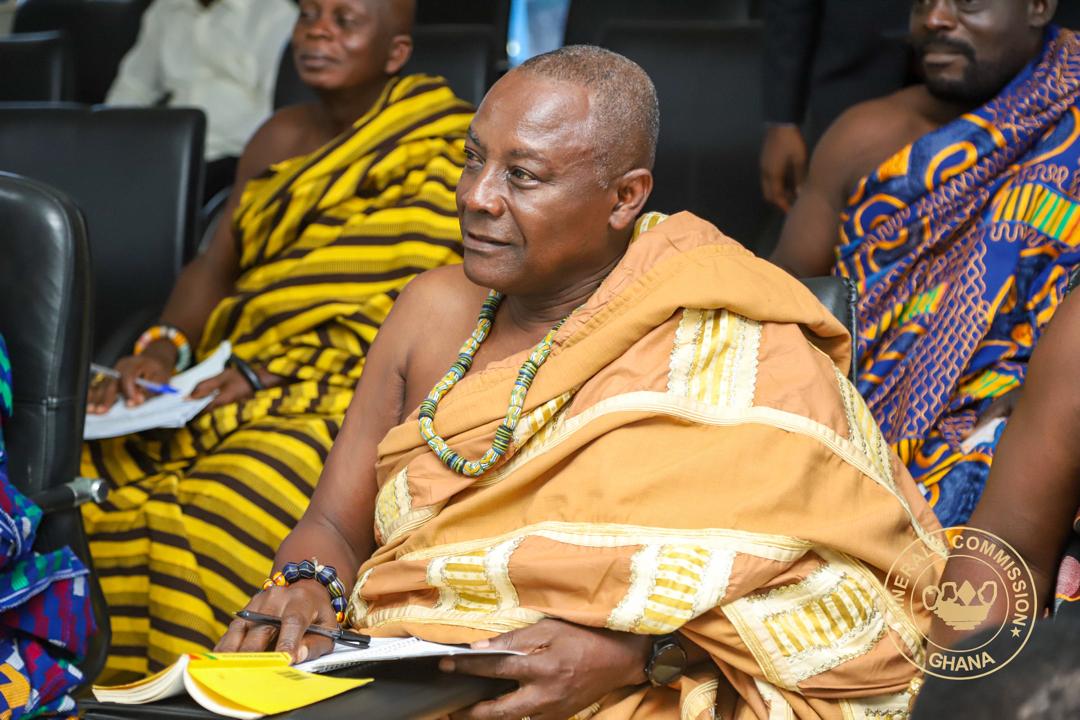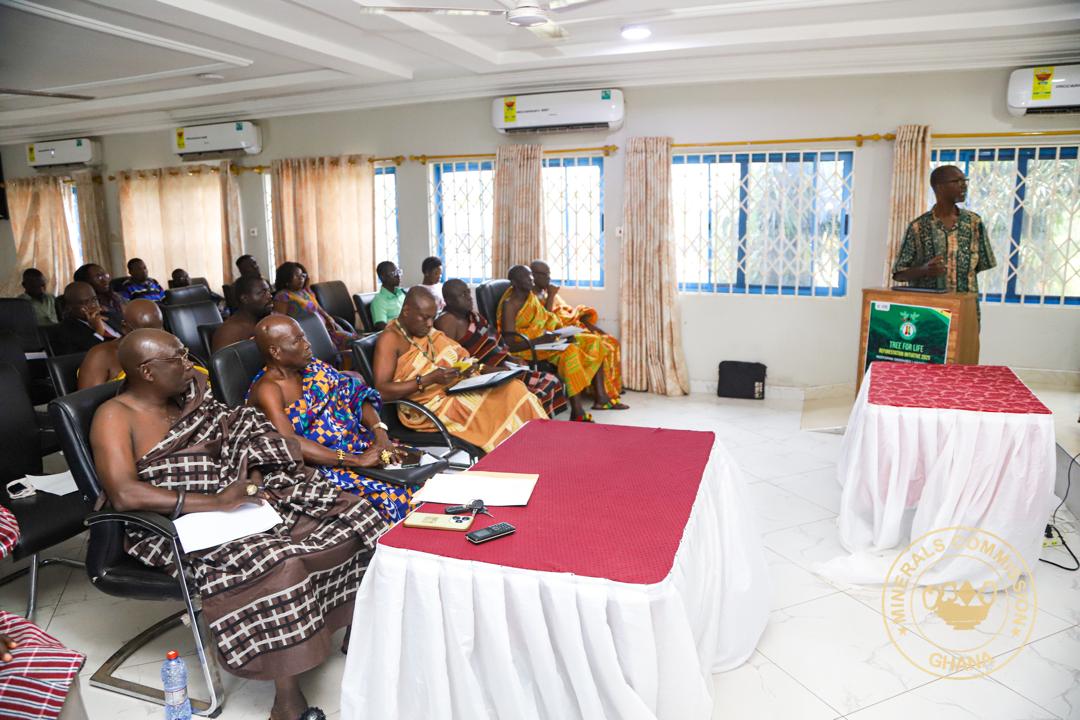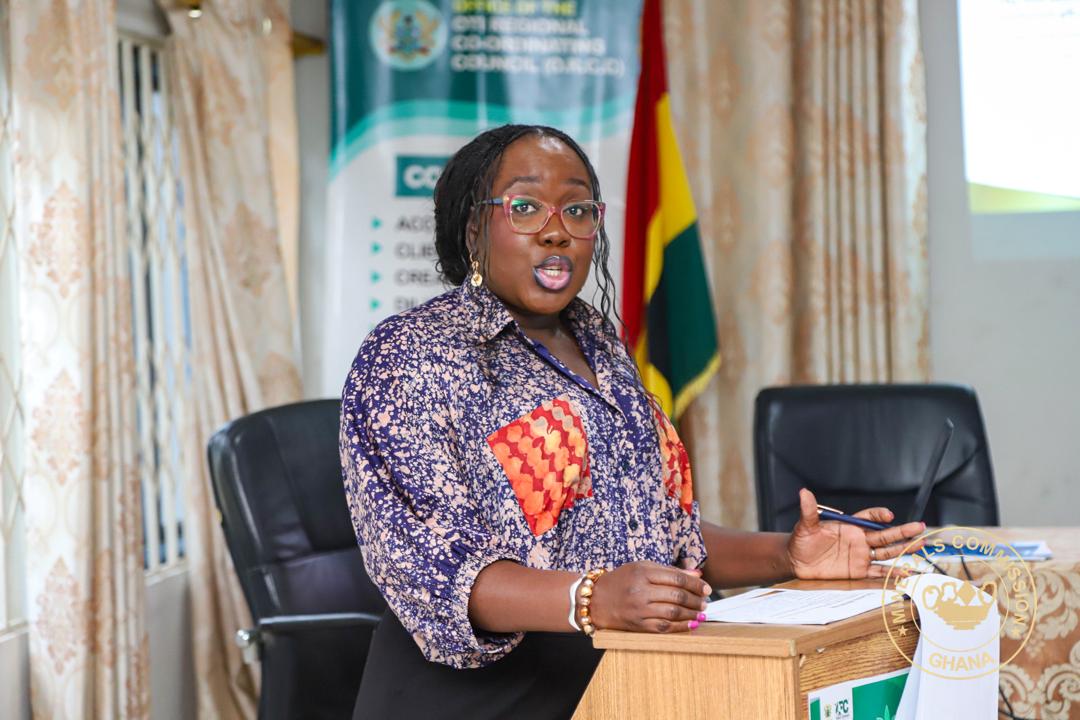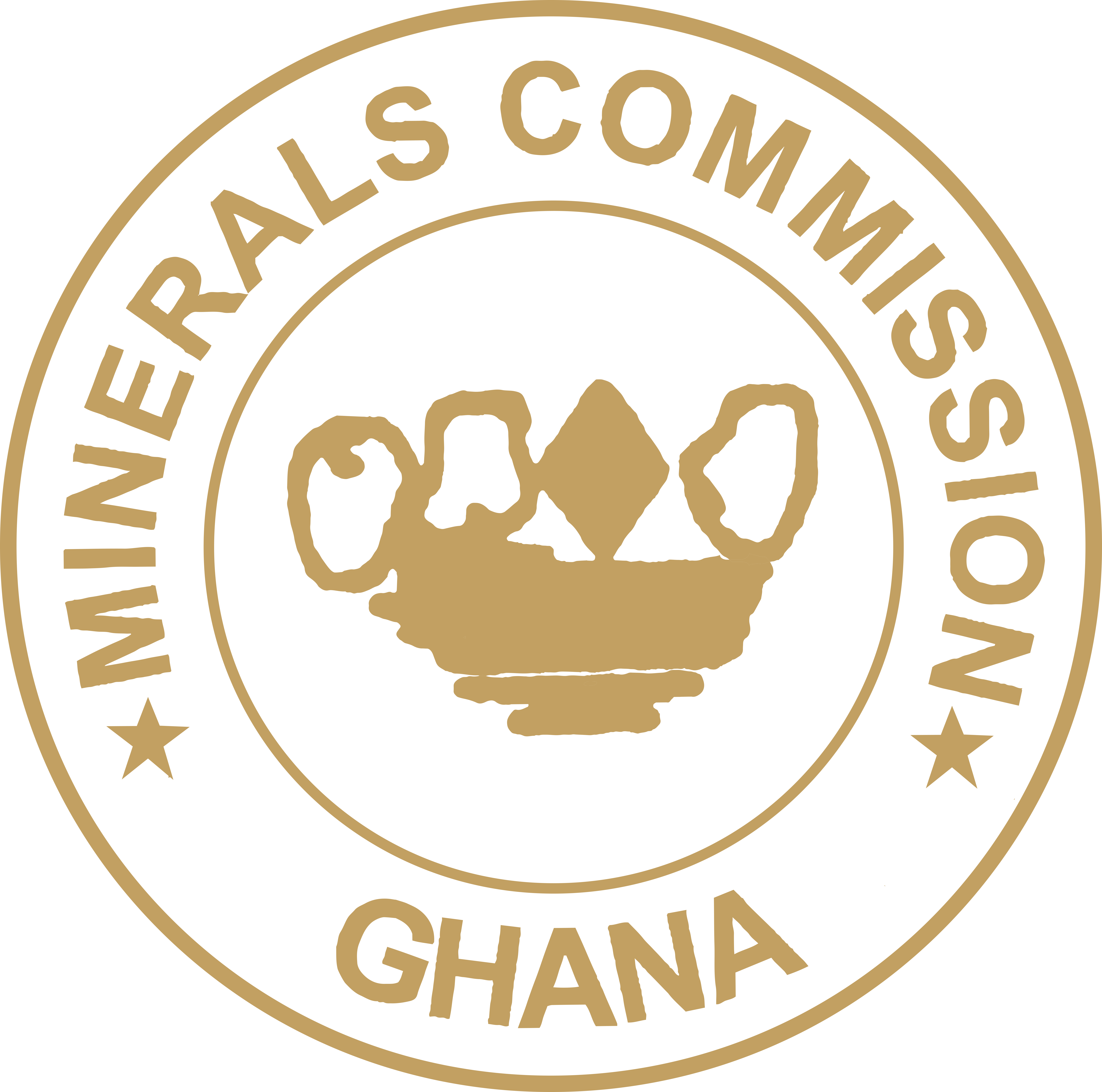Oti Regional House of Chiefs Calls for Sustained Consultations Between Minerals Commission and Traditional Authorities.
Speaking on behalf of the Chief Executive Officer of Minerals Commission, Mr. Nelson Ahedor Director responsible for Small-scale Mining and Industrial Minerals emphasized that the policy and regulatory review process of Ghana’s Mining Policy and the Minerals and Mining Act, 2006 (Act 703), reflects government’s commitment to align Ghana’s mining regulatory framework with emerging industry trends, best practices and technologies, whilst addressing the challenges confronting the current regulatory framework since its implementation.
He emphasized that the ongoing stakeholder consultation, in particularly with traditional authorities and community leaders will ensure that the revised policy reflects the both domestic and international realities of the industry. This will ensure that policies and frameworks are informed by the lived realities of the Ghanaian people.
Mr. Nelson reiterated that as custodians of land and vanguards of our tradition and culture, chiefs play a pivotal role in shaping government policies that governs the utilization and conservation of our natural resources. Whilst the current mining legislation and attendant regulations have served us well thus far, the pressing challenges we face – including environmental degradation, water pollution, and the burgeoning menace of illegal mining further necessitated the comprehensive review and refinement of the legal architecture, He added.
Mr. Benjamin Aryee, former CEO of Minerals Commission and one time, an Advisor to the sector Ministry, delivered a thorough going analysis of the 2014 Mining Policy, underscoring pivotal innovations. Notably, he accentuated the incorporation of the Green/Critical Minerals Policy, which highlights the imperative of sustainable mining practices amidst the burgeoning global demand for critical minerals.
Mr. Aryee expounded on the ramifications of nascent global trends, including climate change and the growing importance of industry principles, including the Environment, Social, and Governance (ESG) standards, in Ghana’s extractive sector. He also underscored salient governmental initiatives, such as the introduction of Cooperative Mining and the recategorization of mining, which encompasses the creation of a medium-scale category.
Mr. Aryee posited that “emerging global trends, such as climate change and the growing salience of transition minerals, coupled with challenges arising from implementation over the past decade and the strategic significance of small-scale mining to Ghana’s economy, necessitate a paradigmatic shift in our approach.” This review underscores the exigency for a forward-looking and adaptive mining policy framework that navigates the complexities of the contemporary mining landscape.
Mrs. Fafanyo Kukubor from, Gender and Legal Officer of Minerals Commission
highlighted key aspects of the proposed amendment to the Minerals and Mining Act, 2006 (Act 703), whilst emphasizing the critical legal and institutional role of traditional authorities.
Ms. Kukubor , emphasized that the proposed amendment mandates the Minerals Commission to proactively disclose various information regarding mineral rights, including agreements, licenses, payments, revenues, and production volumes. This move aligns with Ghana’s commitment to the Extractive Industries Transparency Initiative (EITI) and will enhance accountability and transparency in the mining sector n the context of the Right to Information Act, 2019 (Act 989). While ensuring the protection of confidential and proprietary information, the commission will adopt international best practices, drawing from the experiences of countries such as Guinea, Liberia, and Sierra Leone to deepen good governance in the sector.
Additionally, the proposed amendments aims to update the law to reflect the current status of the Ghana Geological Survey Authority, which has transitioned from a department to a fully-fledged authority. This change will ensure that the law accurately reflects the current institutional framework. Ms. Kukubor also outlined salient amendments under consideration, including:
- Community Development Agreements (CDAs): Ensuring that a stipulated 1% of mining revenues is directly devolved to local communities, thereby fostering tangible benefits and socioeconomic development.
- Stringent Licensing Requirements: Mandating the procurement of Environmental Permits (EPA) and Operating Permits (Chief Inspector of Mines) as a prerequisite to commencing mining operations, thereby ensuring compliance with environmental and safety standards.
- Rationalization of License Durations: Capping prospecting licenses at 9 years and mining leases at 15 years, thereby striking a balance between exploration and exploitation.
- Decentralization of Minerals Commission Services: Bringing regulatory support and oversight closer to mining communities, thereby enhancing accessibility and responsiveness.
- Fiscal Reforms: Ensuring an equitable distribution of revenue and improved governance, thereby promoting transparency and accountability in the management of mineral resources.
His Eminence, Nana Soglo Alloh IV, President of the Oti
Regional House Chiefs underscored the imperative of fostering substantive partnerships with traditional councils from the inception of mining activities to mine closure. Nana Soglo lamented that prevailing practices often entail perfunctory interactions, bereft of transparency and accountability. To effectively mitigate issues such as illegal mining, it is essential to engage chiefs and local communities in a meaningful and inclusive manner. He proposed designating specific areas for indigenous populations and revising the royalty framework to ensure equitable compensation to traditional areas.
The paramount chief expressed gratitude for the opportunity to engage in the discussion and pledged to provide detailed feedback, emphasizing the necessity of sustained collaboration as key stakeholders.
END
